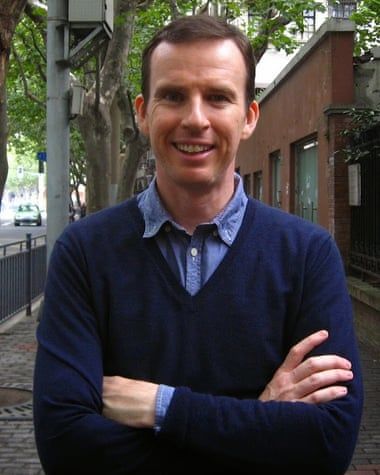
Expulsions lead BBC to fear for reporters in authoritarian regimes
BBC news executives vowed on Saturday night to continue to report from Russia and China despite growing fears that both countries are becoming increasingly difficult to cover.
After a surprise Russian move last week that will force correspondent Sarah Rainsford permanently out of Moscow at the end of the month, a senior figure in BBC news said that Russia’s decision not to renew her visa marks a new low in relations. “Efforts are being made to keep communications open but the feeling is that Sarah is sadly right when she says she doesn’t see Russia changing its mind,” he said.
Russian state media claims the decision not to renew Rainsford’s visa is a retaliatory step in response to British refusal to grant visas to some Russian journalists. But the names and outlets of those allegedly refused visas have not been made public.
In March the BBC’s former Beijing correspondent John Sudworth left China to report from Taiwan after pressure and threats from the Chinese authorities. Sudworth, who had won awards for his reporting on the treatment of the Uyghur people in the Xinjiang region, had also reported on the growing pressures of working under the Chinese regime.
This weekend the BBC news executive said that as recently as five years ago “it was almost unimaginable we would lose staff in either Russia or China”, describing it as “a kind of nuclear option” that draws them closer to established no-go areas such as Iran and North Korea, where reporting is banned. “In the past, they have been very reluctant to deport correspondents. It is such a bad look. So this shows how bad things are getting. We haven’t had anyone actually removed from China, although Sudworth did move his family to Taiwan for the last part of his posting.”
The Russian decision to eject Rainsford shows that an institution as “big and robust as the BBC” is now a target of censorship, where once it was protected by the threat of serious reputational damage to a country that limited the reach of its reporting. The development also reveals, the news executive said, how difficult other smaller news organisations must find effective coverage.
 John Sudworth, the BBC’s former Beijing
correspondent, left for Taiwan in March after pressure and threats from
the Chinese authorities.
John Sudworth, the BBC’s former Beijing
correspondent, left for Taiwan in March after pressure and threats from
the Chinese authorities.
Rainsford’s expulsion marks a shift in pressure from Russian-language outlets such as Meduza and Proekt to Moscow’s foreign press corps. It also sends a direct warning to the BBC, which has greatly expanded its Russian-language journalism in the past five years and has taken on some of the country’s best local reporting talent.
That expansion has produced tough reporting which has angered the Russian government. Last week, BBC News Russian and BBC News Arabic published an investigation that revealed the size and scope of a Russian mercenary operation in Libya, using information from a Samsung tablet discovered on the battlefield. Reporters have privately voiced concerns that, as a refuge for journalists who have fled local news outlets under state pressure, BBC News Russian – or they personally – could also be targeted by the government.
Speaking on Saturday, Rainsford said: “I’ve really loved trying to tell the story of Russia to the world but it is increasingly a difficult story to tell. I have to say, though, I wasn’t expecting this to happen. There were clear signs for Russian media: there have been really serious problems recently, for Russian independent journalists, but until now, for the foreign press, we’d somehow been shielded from all of that.”The BBC still has about 100 employees working in Moscow, including BBC Monitoring service staff, and it sees no immediate threat to this situation.
The BBC executive said the Russians have previously cited the British failure to accredit reporters working for the state news agency Tass and sanctions against Russian diplomats as a cause for complaint.
“What they are saying is not untrue, but we certainly disagree with the comparison with Tass. The BBC does not belong to the British government, it belongs to British people.”











